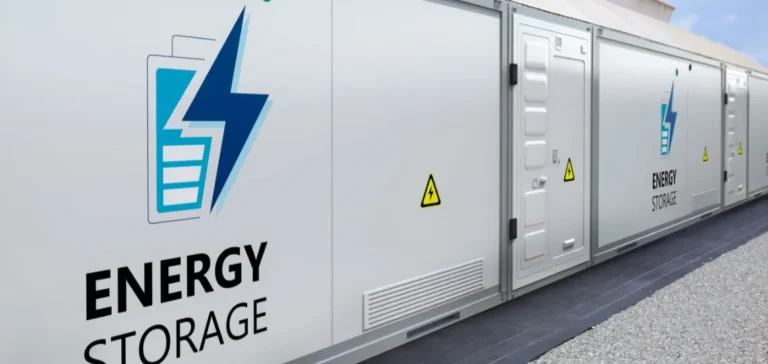Chinese provider Trina Storage, a subsidiary of Trinasolar, launched a new 6.25 megawatt-hour (MWh) energy storage system at the Solar & Storage Live KSA exhibition. Named Elementa 3, the system integrates 587 ampere-hour (Ah) cells, significantly increasing cabinet capacity while enhancing efficiency and safety.
Module energy density has been raised by 12.3 % compared to the previous generation, while the Elementa 3’s more compact design improves site-level energy density by 24.7 %. These upgrades directly contribute to lowering the levelised cost of storage (LCOS), a key metric for grid operators and investors in storage technologies.
Enhanced system for grid demands
Elementa 3 was designed to ensure enhanced safety through optimised cell materials, a liquid cooling system at the module level, and a fire-resistant cabinet structure rated for two hours. Chip-level active balancing technology extends the module lifecycle and improves performance under high-demand conditions.
The system targets the operational needs of power grids exposed to significant load fluctuations, particularly in regions with fast-developing energy infrastructures. It is also designed to improve grid stability where high demand peaks or frequent outages occur.
Localised for extreme climate conditions
Developed specifically for the Middle East’s harsh environments, Elementa 3 includes a C5 coating resistant to salt spray and sand abrasion, particularly along the Red Sea coast. The system’s modules meet IP67 protection standards, ensuring reliable operation in high-dust regions.
The platform can operate at temperatures up to 55 degrees Celsius, supported by a biomimetic cooling system that sustains long-term performance. This thermal capability increases the system’s relevance for infrastructure projects in the Gulf’s desert zones, which are often exposed to extreme climate conditions.
Towards broader integration in regional projects
The system is positioned to address growing storage needs within Saudi Arabia’s energy projects, where energy diversification plans demand resilient, locally adapted technologies. Trina Storage highlights localisation as a key factor for entering a market where environmental conditions present specific challenges for imported technologies.
Its ability to maintain stable performance under Gulf climate stress could accelerate Elementa 3’s adoption in renewable energy projects, especially those requiring quick response to generation variability.






















